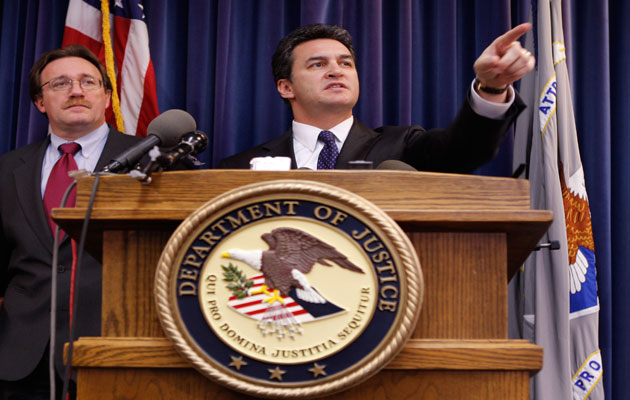Jerome Valcke, FIFA’s secretary-general, wants investigator Michael Garcia to hurry up and publish his report into the scandal-hit bid process for the 2018 and 2022 World Cups.
The world federation’s World Cup progress chaser, is the second major FIFA figure this week to ratchet up the pressure on the American attorney. Earlier governance expert Mark Pieth warned that Garcia should leave no stone unturned in seeking the truth.
Valcke was winding up his latest visit to check on progress of preparations for the 2014 finals which open in Brazil on June 12.
Garcia, the American attorney appointed as FIFA’s investigator/prosecutor two years ago, has been conducting an inquiry into events which reached a climax in December 2010 with the World Cup awards to Russia and Qatar for 2018 and 2022 respectively.
Under the terms of the rebuilding of the ethics system, Garcia is supposedly independent and not subject to pressure or interference from anyone within the world football federation.
Recently Garcia was in Zurich, interviewing members of the ruling executive committee about events in 2010. Garcia’s tenacity so upset some senior members of the exco that they plotted, in vain, to have his work halted in its tracks.
Valcke, the senior paid/employed official of FIFA, made his own intervention at a media briefing.
He said: “[The report] should come now, we should have a final, final position and the best would be even before the World Cup 2014 and then just work on the next World Cup.
“We are working on the organisation of 2018 from now, as we are working with Qatar since the first day they received the organisation of the World Cup.
“We need to be able to work in an environment which is, let’s say, a safe one.”
Qatar’s hosting of the World Cup has been beset by other controversies from the hosting date itself – because of searing summer temperatures – to its medieval labour laws as exemplified by the kafala system which has come in for international criticism – most recently from the United Nations.
The need for Garcia’s report to be conclusive – whatever it unearthed and however long it took – came earlier this week from Pieth, the Basel academic who oversaw the recent FIFA reform process.
Pieth wrote, in a final report on his work: “If FIFA is to emerge from the scandals of recent years it must produce a convincing and transparent answer to any issues relating to hosting decisions, either to confirm that the suspicions are, sadly, well founded or to demonstrate that they are groundless.
“The ethics committee should not rest until there is a conclusive answer.”
Garcia’s report – whenever he concludes it – has to be handed up for a verdict on its recommendations not to the exco but to ethics judge Hans-Joachim Eckert.







